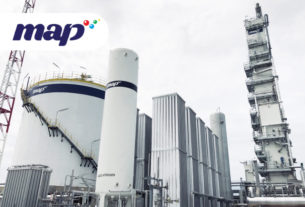NEW BUILDINGS will soon be required to introduce new technology and equipment to reduce energy consumption by 30 per cent from the 2010 base if they are to win construction licences.
The list of products with the “Eco” label will be expanded to cover new devices like tablets and mobile phones, to ensure that only energy-efficient devices are in use.
These are among a series of measures outlined by the Energy Ministry in the quest to lower Thailand’s energy intensity by 30 per cent by 2036 from the 2010 base. The integrated energy-efficiency plan is designed to put stricter control on existing industrial and commercial buildings, all new buildings, electronic and electrical appliances, utility producers, the transport sector and government agencies.
Twarath Sutabutr, deputy permanent secretary of the Energy Ministry, said the target was achievable with the advanced technology available today and in the future.
Energy intensity is in focus as the authorities seek to achieve a more balanced strategy. While supply will be boosted by new investment locally and overseas, the demand side will have to be lowered to ensure long-term national energy security and combat climate change.
In 2010, every kilotonne of oil and other energy sources consumed in Thailand cost the Kingdom Bt15.6 billion. That cost will be cut by 30 per cent by 2036, when energy consumption should be cut by 56,142 kilotonnes of oil equivalent (ktoe).
To achieve this, the Building Code will be strengthened, to issue construction licences to only those buildings that can meet the requirements. Starting this year, government agencies that are constructing new buildings have to comply with the requirements, or their expenses will not be approved. For private buildings, the new rules are set to take effect in 2017, when electricity consumption should be cut by 20ktoe. The rate of reduction will be gradually stepped up, eventually reaching 1,407ktoe in 2036.
The Eco-label list will be extended from 54 items at present to cover cars, motorcycles and notepads, for example.
“With the labels, consumers will find it easier to buy energy-efficient products. This will be changed in line with the changing lifestyle,” Twarath said.
The plan will cover financial support to energy-saving projects, entailing subsidies, soft loans, funds to energy service companies and tax incentives.
Talks are under way to replace conventional light bulbs on highways and public venues with LEDs (light-emitting diodes), which will reduce electricity costs and will be less harmful to the environment. To encourage a change to LEDs in the household, business and industrial sectors, the Energy Conservation Fund will extend loans for replacement. The interest-free loan can be repaid with the savings in electricity costs in a 24-month period.
Utility giants Electricity Generating Authority of Thailand, Metropolitan Electricity Authority and Provincial Electricity Authority will be ordered to campaign for energy reduction among their clients. The percentage of energy consumption will be linked to each agency’s key performance index (KPI), allowing it to win compensation if it is able to beat the target. In this regard, by 2036, 2,728ktoe is expected to be saved.
“We are working on the compensation. The level should be enough to incentivise these agencies,” Twarath said.
The biggest cut is expected to come from the transport sector, 30,666ktoe in 2036. More than one-third, 13,731ktoe, will be achieved through the promotion of low-emission vehicles, based on the assumption that 11 million new passenger vehicles will be on the streets between 2016 and 2036 and 4 million pickup trucks. The new excise tax, levied accordingly to emission levels, will take effect next January 1.
A total of 1,250ktoe is expected to be saved in 2036 through improvements in the logistics sector. About 200 logistics providers are now joining the Federation of Thai Industries’ project to improve logistics management, which should save energy consumption by 10 per cent and improve driving behaviour, which could save another 25 per cent.
“We have to make a move, though all these may not be completed within this government’s term. These measures coupled with price signals will significantly cut down energy consumption,” Twarath said with confidence.
Source: http://www.nationmultimedia.com/business/Kingdom-on-path-towards-lower-energy-consumption-30261381.html


